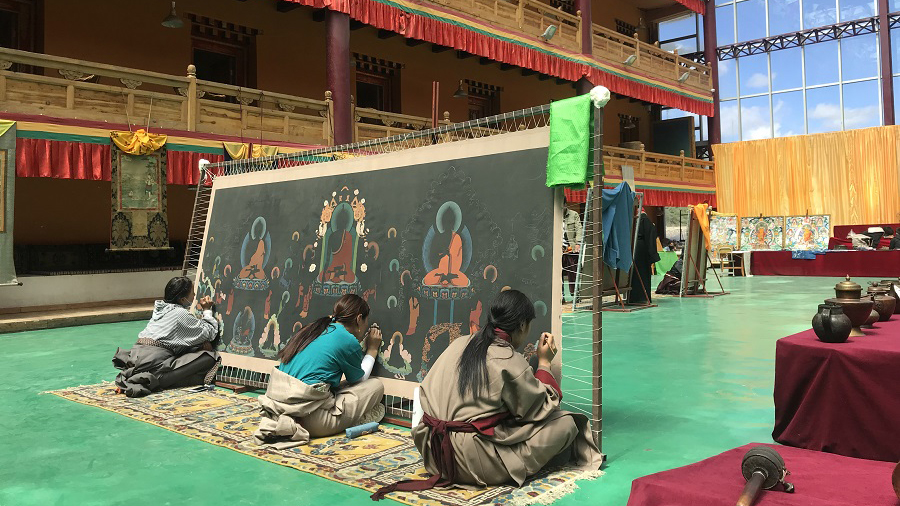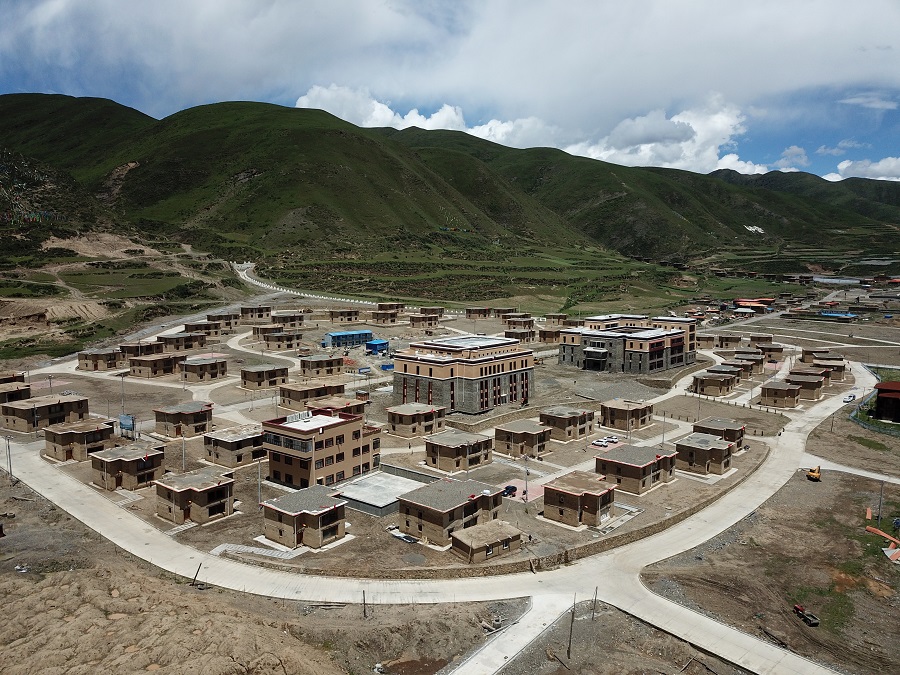02:34

Twenty-four year-old Tadron Wangmo has been learning the traditional Tibetan Buddhist art of Thangka at a special school for more than seven years. She comes from a poor family of herders in Rangtang County in the Aba Tibetan and Qiang Autonomous Prefecture of southwest China's Sichuan Province, where many ethnic Tibetans inhabit.
After her graduation in 2017, Tadron chose to stay and work in the school, where she receives a steady monthly salary of 3,000 yuan (420 U.S. dollars). Apart from regular income, the school also provides free accommodation in a traditional Tibetan house in a newly-built cultural park.
Meanwhile, Tadron can earn extra money from her own creations, each painting priced at minimum 50,000 yuan. Thangka orders are pouring in from collectors, temples and museums. From her current painting, Tadron can probably make an extra 20,000 yuan after it is completed in around three months.

A park built by Rangtang authorities to develop cultural industry. /CGTN
A park built by Rangtang authorities to develop cultural industry. /CGTN
Along with government subsidies, she said she's been able to lift her family out of poverty the year she got a job here.
Tadron told CGTN that before she came to the school, she was not able to buy delicious food and fancy clothes like other people since her family was poor. "But now I feel very happy that I'm earning money myself by painting Thangka. With my income, I can not only support my family, but I can also buy what I want as well," she said.
There are now nearly 200 students studying Thangka at the training school, including 40 who were mostly herdsmen from impoverished families.
They don't need to pay a penny for the study and they are eligible for a 300-yuan government stipend every month.

Apprentices at a Tibetan incense workshop grounds spices into fine powder. /CGTN
Apprentices at a Tibetan incense workshop grounds spices into fine powder. /CGTN
Tenpa Rabgye, Thangka teacher at Rongbala Thangka painting training school, is happy that the art is now passing down to help many out of poverty with governmental and private support. "I've been teaching for over 10 years here. We've held many exhibitions on Thangka paintings both at home and abroad, attracting many Thangka lovers to join us. I hope that Thangka culture can be better inherited and developed in the future," Tenpa explained to CGTN.
In Hongyuan County, apart from Thangka painting, over 1,500 students are learning dozens of other traditional arts including Tibetan incense and Tibetan pottery making. About a third of these students are from poor families.
For instance, there are 15 apprentices from impoverished households learning techniques for future work at a Tibetan incense workshop.
The local government is pushing ahead with its plan to develop this industry, spending more than 40 million yuan on a new cultural park that aims to accommodate more training schools. A Thangka Collective Creation Center will open this August to more students and Thangka lovers.